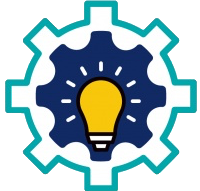Crude Oil Pipeline Operations
Details :
This course utilises case studies and industry best practices for
operating and maintaining onshore crude oil and liquid pipeline systems that maximise life cycle reliability; employee, public, and environmental safety;
and operational cost effectiveness. It focuses on open discussions and
troubleshooting techniques that may be applied to crude, HVL (High Volatility Liquids)
and refined product pipelines and their associated infrastructure. The course
aims to improve the operation profitability and communication with management
and engineering staff.
• Apply regulatory codes, standards, and industry guidelines (PHSMA
195, ASME B31.4, API-1173 and others) that control and guide the operation and
maintenance of pipeline facilities
• Explain fluid properties and behaviour of crude oils, wax
behaviour, temperature relationships and use of DRA in crude oil pipelines
• Explain pipeline hydraulics, pipeline
pressure gradients and predict capacity on the system
• Identify pipeline MOP, surge and causes of
overpressure and mitigation measures
• Explain pipeline facilities; pump stations,
filtration, metering and LACT units, sampling and testing, pigging equipment,
tank terminals
and truck/rail loading facilities
• Explain liquid pipeline operations;
commissioning and purging/filling, start up, stopping, pigging and pig receiver
operations, measurement and sampling activities
• Identify principle causes of loss of
containment and mitigating measures; corrosion, environmental cracking, overpressure,
3rd party damage and error
• Review regulatory compliance requirements for
CFR 49, Part 195, to be better prepared in the case of compliance audits
• Explore emergency response measures to spills and loss of
containment
Pipeline operations personnel who require a working knowledge of
onshore liquid pipeline and terminal systems, including the common operational
difficulties that may arise and operational tactics used to resolve them. Also suitable
for maintenance personnel, metering technicians, lead supervisors, area
managers, and engineering staff that need a working knowledge
of field pipeline operations.
• Crude oil transportation systems
• Industry codes and regulations, scope and applicability
• Crude oils, waxes and DRA, fluid properties and behaviour
• Hydraulic analysis of pipelines and gradients
• Pipeline pumps – components, operation, seal systems and seal
leak detection
• Pipeline surge and overpressure protection systems
• Pipeline facilities – filtration, pressure controls, pigging
equipment
• Terminal facilities – tanks, truck/rail loading, metering,
sampling and proving
• Pigging goals, processes and activities
• Pipeline repairs and maintenance
• Corrosion overview and prevention
• Leak detection methods
• CFR 49, Part 195 review of documentation
requirements and terminology
- All lectures are in colorful presentation
- All lectures are interspersed with interactive discussion
- All lectures include group discussion, case history and exercises
- Actual major incidents as well as industry experience are reviewed
- Participants receive a multicolor course manual
- Pictures of real incidents and case history are shown
- Videos on the subject are shown
08:20 - 10:00 First Session
10:00 -10:20 Coffee / Tea / Snacks
10:20 - 12:20 Second Session
12:20 - 13:30 Lunch Break & Prayer Break
13:30 - 15:00 Last Session


